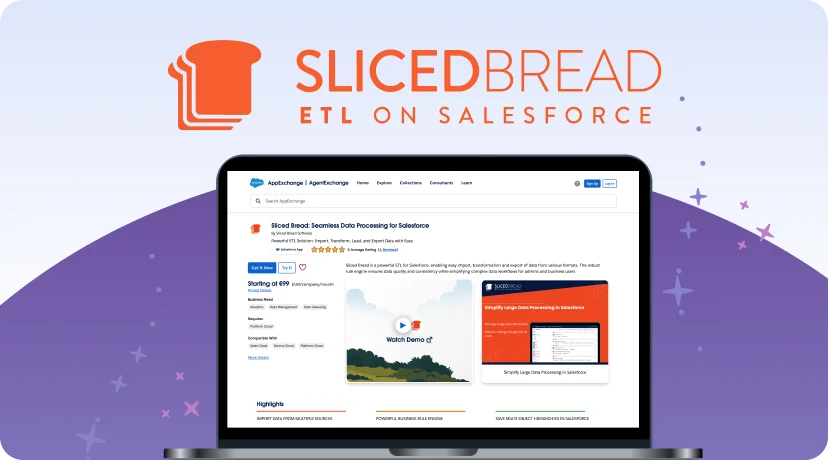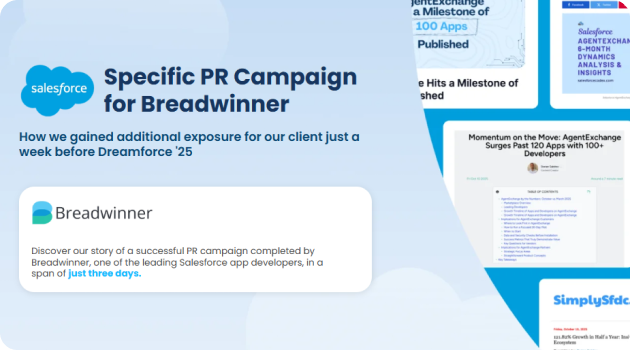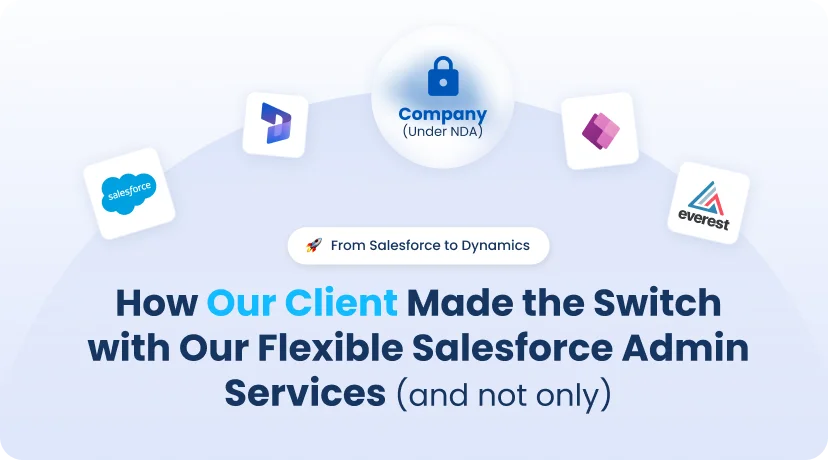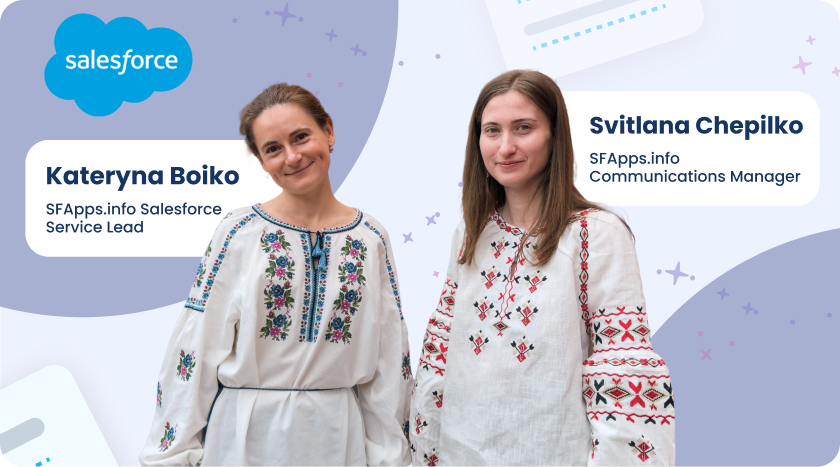
The strategic role of Salesforce consultants has become increasingly critical as enterprises continue to expand their customer relationship management (CRM) initiatives. Salesforce consultants are certified professionals who specialize in the configuration, optimization, and integration of Salesforce solutions to meet complex business requirements. Their expertise enables organizations to maximize the return on investment from Salesforce deployments, ensuring seamless alignment between business processes and technological capabilities.
The Salesforce consulting services market has experienced substantial growth, reaching an estimated $13.2 billion globally in 2024. This expansion is directly linked to the widespread adoption of Salesforce as the CRM platform of choice across multiple industries, including finance, healthcare, and retail. As companies prioritize customer-centric strategies, the demand for tailored Salesforce solutions continues to accelerate, driving the need for highly skilled consultants.
Moreover, the Salesforce ecosystem itself is projected to generate approximately 11.6 million jobs and $2.08 trillion in new business revenues worldwide by 2028 This ecosystem growth underscores the increasing importance of professional consulting support, especially as organizations face a growing shortage of qualified Salesforce talent. According to recent projections, the global shortage of Salesforce professionals could reach 9.3 million roles by 2026, creating an urgent need for enterprises to hire Salesforce consultant resources to bridge the talent gap and ensure successful implementation.
CRM adoption rates also continue to surge, with over 91% of organizations with 11 or more employees now utilizing a CRM platform. Salesforce remains the dominant provider, commanding a 23.9% share of the global CRM market. These figures emphasize not only the necessity of Salesforce platforms but also the critical role consultants play in implementing, customizing, and optimizing these systems for maximum organizational impact. To realize these benefits, many businesses now see it as a strategic priority to hire Salesforce expert professionals capable of driving transformation and delivering measurable results.
Consequently, engaging Salesforce consultants is no longer a supplementary consideration but a strategic necessity for enterprises aiming to maintain competitive advantage, enhance customer experiences, and future-proof their CRM ecosystems in an increasingly digital business environment.
- When It Is Worth Hiring a Salesforce Consultant or Salesforce Specialist
- Types of Salesforce Consultants and Their Responsibilities
- Functional Salesforce Consultants vs Technical Consultants: Key Differences
- What to Expect When Hiring Salesforce Consultants Remotely
- Expectation: Seamless Communication
- Reality: Communication Delays and Misalignment
- How to Mitigate
- Expectation: Immediate Productivity
- Reality: Onboarding Complexity
- How to Mitigate
- Expectation: Full Alignment with Project Goals
- Reality: Context Gaps
- How to Mitigate
- Expectation: Consistent Quality Delivery
- Reality: Quality Variances
- How to Mitigate
- Expectation: Cultural Fit
- Reality: Cultural Misalignment
- How to Mitigate
- Expectation: Cost-Efficient Engagement
- Reality: Variable Cost Benefits
- How to Mitigate
- Possible Costs of Hiring a Nearshore Salesforce Consultant
- Key Factors to Consider When Choosing Salesforce Consultants for Hire
- FAQ about Hiring Salesforce Consultants
- How long does it typically take to implement Salesforce with a consultant?
- What are the average costs associated with hiring a Salesforce consultant?
- Should enterprises prefer remote Salesforce consultants or onsite engagement?
- How can organizations verify a Salesforce consultant’s certifications?
- Are there differences between freelance Salesforce consultants and consulting firms?
- How important is industry-specific Salesforce experience?
- Conclusion
When It Is Worth Hiring a Salesforce Consultant or Salesforce Specialist
Enterprises increasingly recognize that Salesforce implementations demand more than basic platform knowledge. Strategic deployment, customization, and optimization are essential to achieving a measurable return on investment. Without expert guidance, organizations risk underutilizing features, encountering integration issues, and ultimately facing adoption failure. The Gartner survey revealed that up to 70% of CRM implementations fail to meet their original objectives. Consequently, engaging professional Salesforce consultants or choosing to hire Salesforce specialist professionals has become a critical step toward ensuring platform success and sustained organizational growth. Businesses looking to hire Salesforce expert support early in the process can dramatically reduce costly errors and accelerate value realization.
Launching Salesforce for the First Time
The initial deployment of Salesforce often determines long-term user adoption and operational efficiency. Enterprises without prior CRM experience frequently encounter configuration challenges, insufficient user training, and data migration errors. When you hire a Salesforce delivery manager consultant, you bring in structured project leadership and proven implementation methodologies. These experts ensure the foundational setup aligns with business processes, regulatory standards, and future scalability requirements. Moreover, their expertise significantly reduces the risks associated with first-time implementation errors, accelerating the time-to-value of Salesforce investments.
Setting Up Complex Workflows
As organizations expand, their internal processes become increasingly intricate. Configuring Salesforce to support multi-layered workflows, approval processes, and automated notifications requires specialized technical and functional knowledge. In-house teams may lack the necessary expertise to optimize these features effectively. By choosing to hire Salesforce specialist consultants, enterprises benefit from expert-level workflow design and execution, resulting in higher operational efficiency and reduced administrative overhead.
Scaling Salesforce for Growth
Business growth demands Salesforce environments that can scale seamlessly. However, scaling efforts often expose architectural flaws in the original system configuration. Salesforce consultants assess scalability requirements, optimize performance, and implement solutions such as multi-cloud integration, API enhancements, and role-based access control. By choosing to hire nearshore Salesforce consultant services, companies can enjoy both cost-effective expertise and real-time collaboration across similar time zones, avoiding costly reimplementations while ensuring Salesforce evolves with their business. As a result, enterprises avoid costly reimplementations and ensure that Salesforce evolves alongside their organizational needs.
Integrating Third-Party Applications
The Salesforce AppExchange ecosystem offers over 7,000 third-party applications. However, integrating these tools into an existing Salesforce environment can present significant technical challenges. Consultants possess the expertise necessary to conduct integration planning, system compatibility assessments, and customized API development. Their involvement mitigates the risk of data inconsistencies, system downtime, and reduced user productivity.
Optimizing Underperforming Salesforce Setups
Organizations that experience declining user engagement, inconsistent reporting, or slow system performance often attribute these issues to poor initial configuration. Salesforce consultants conduct comprehensive audits, identify bottlenecks, and implement corrective measures tailored to organizational goals. Through process refinement and platform optimization, consultants enable enterprises to regain lost value and restore confidence in their Salesforce investments.
Insight:
Enterprises that engage certified Salesforce consultants during key implementation phases experience a 35% higher platform adoption rate and a 29% faster time-to-value compared to those that rely solely on internal resources.
Types of Salesforce Consultants and Their Responsibilities
The Salesforce consulting ecosystem comprises several specialized roles, each fulfilling distinct functions critical to successful CRM implementations. Recognizing these differences allows enterprises to find a Salesforce consultant whose expertise aligns precisely with their organizational needs. Understanding the responsibilities of each type is essential for optimizing project outcomes and long-term system performance.
Functional Salesforce Consultants
Functional Salesforce consultants focus primarily on understanding business requirements and translating them into platform-specific solutions. Their responsibilities include gathering business needs, designing scalable processes, and ensuring that Salesforce workflows align with client objectives. Functional consultants work closely with stakeholders to configure system features without engaging in deep-level coding. Their knowledge of Agentforce Sales (formerly Sales Cloud), Service Cloud, and Marketing Cloud functionality is typically certified through credentials such as Salesforce Certified Sales Cloud Consultant.
Moreover, functional consultants lead workshops, create user stories, and develop strategic roadmaps for Salesforce initiatives. Their contribution significantly reduces project risk by ensuring that business processes are accurately reflected in system configurations.
Technical Consultants
Technical Salesforce consultants are responsible for the complex development and customization activities that extend beyond out-of-the-box capabilities. These consultants are proficient in Apex coding, Visualforce development, Lightning Components, and API integrations. Many technical consultants hold certifications such as Salesforce Certified Platform Developer.
In contrast to functional consultants, technical experts build tailored solutions to support unique business logic, automate complex processes, and integrate Salesforce with third-party platforms. Their role is crucial in scenarios requiring system customizations that cannot be achieved through standard configurations.
Solution Architects
Solution architects oversee the design of holistic Salesforce solutions that integrate seamlessly with broader enterprise systems. Their responsibilities encompass high-level system architecture planning, platform scalability assessments, and multi-cloud strategy development. As senior-level professionals, they often possess advanced certifications such as Salesforce Certified Technical Architect.
Moreover, solution architects serve as strategic advisors, ensuring that technical decisions align with long-term business goals. Their input is critical for large-scale projects involving complex integrations, high user volumes, or cross-functional business processes.
Consequently, selecting the appropriate type of Salesforce consultant is essential to achieving successful implementation, optimization, and long-term system sustainability. Enterprises that invest in certified Salesforce consultants positioned for their specific needs are significantly more likely to realize strategic business objectives through Salesforce deployments.
Functional Salesforce Consultants vs Technical Consultants: Key Differences
Salesforce projects frequently require collaboration between functional consultants and technical consultants. While their roles are interconnected, they encompass distinct responsibilities, focus areas, and skill sets. Understanding these differences is critical for enterprises seeking Salesforce consultants for hire who can deliver comprehensive and effective CRM solutions.
Focus Areas
Functional consultants primarily focus on translating business requirements into Salesforce solutions using the platform’s declarative features. Their objective is to align Salesforce capabilities with operational processes without extensive custom coding. In contrast, technical consultants concentrate on platform development and system integrations, handling customizations that extend beyond standard configurations.
Primary Tasks
The workstreams of functional consultants include conducting requirement workshops, designing process automation, configuring Salesforce modules, creating reports, and overseeing user training initiatives. They ensure that business processes are accurately captured and implemented within the platform.
Technical consultants are responsible for designing and developing custom Apex classes, triggers, Visualforce pages, Lightning Web Components, and complex system integrations. Their role also includes data migrations, API development, and ensuring system performance optimization, particularly in multi-cloud or hybrid environments.
Required Skills
Functional consultants are typically certified through programs such as Salesforce Certified Sales Cloud Consultant or Salesforce Certified Service Cloud Consultant. Key competencies include strong analytical skills, business process mapping expertise, Salesforce administration capabilities, and stakeholder communication proficiency.
Technical consultants often hold certifications such as Salesforce Certified Platform Developer I and Salesforce Certified Integration Architecture Designer. Essential skills for technical consultants include proficiency in Apex programming, JavaScript, SOQL, data modeling, and third-party system integration.
The following table summarizes the key differences between functional and technical Salesforce consultants:
| Category | Functional Consultant | Technical Consultant |
| Focus Area | Business process design and configuration | Custom development and system integration |
| Primary Tasks | Requirement gathering, system configuration, training | Coding, API development, performance optimization |
| Required Skills | Business analysis, CRM strategy, Salesforce administration | Apex, Visualforce, Lightning development, integration |
This comparison illustrates that both functional and technical consultants are indispensable for successful Salesforce implementations. However, enterprises must carefully assess their project scope and internal resource gaps before deciding on the appropriate Salesforce consultants for hire. Selecting the right balance between functional and technical expertise ensures comprehensive solution delivery, enhanced user adoption, and long-term platform scalability.
What to Expect When Hiring Salesforce Consultants Remotely
The shift toward remote consulting has transformed how enterprises hire Salesforce specialists. While remote engagements offer expanded access to global talent, they also introduce unique challenges related to communication, project management, and team cohesion. Organizations intending to hire nearshore Salesforce consultants must understand the potential gaps between expectations and reality and implement mitigation strategies to achieve successful outcomes.
Expectation: Seamless Communication
It is often expected that remote Salesforce consultants will maintain flawless communication across different time zones and platforms. Enterprises assume that established collaboration tools and regular meetings will fully bridge geographical distances.
Reality: Communication Delays and Misalignment
In practice, differences in time zones, working hours, and communication styles frequently result in delays and occasional misunderstandings. A report from Owl Labs indicates that 38% of remote teams cite communication as the biggest challenge.
How to Mitigate
Scheduling regular status updates, setting clear expectations for response times, and adopting project management tools like Jira or Asana can significantly reduce communication gaps. Moreover, ensuring that key stakeholders are available during overlapping working hours fosters real-time collaboration.
Expectation: Immediate Productivity
Organizations often anticipate that remote Salesforce consultants will be productive from the very first day, seamlessly integrating into existing project workflows without requiring substantial onboarding.
Reality: Onboarding Complexity
Remote consultants typically face a learning curve related to organizational processes, platform customizations, and stakeholder structures. Without structured onboarding, this adjustment period can impact project momentum.
How to Mitigate
Implementing a formal onboarding program, providing access to documentation, and assigning internal points of contact enables faster acclimatization. Early investment in onboarding ensures that remote consultants become effective contributors sooner.
Expectation: Full Alignment with Project Goals
Enterprises expect remote Salesforce consultants to have an immediate understanding of business goals and project nuances without requiring extensive clarifications.
Reality: Context Gaps
Remote settings can obscure project context, leading to partial understanding of business priorities. According to Buffer’s 2023 State of Remote Work Report, 20% of remote workers struggle with context and collaboration clarity.
How to Mitigate
Conducting detailed project kick-offs, using visual project roadmaps, and fostering open Q&A sessions promote alignment between internal teams and remote consultants.
Expectation: Consistent Quality Delivery
There is an assumption that remote Salesforce certified consultants will consistently deliver work of the highest quality, matching the performance of on-site teams.
Reality: Quality Variances
Without close oversight, discrepancies in deliverables can occur. Varying technical environments and reduced visibility into daily work processes can impact output quality.
How to Mitigate
Establishing clear KPIs, conducting regular quality reviews, and adopting agile methodologies help maintain high standards and enable early identification of issues.
Expectation: Cultural Fit
Enterprises hope that remote Salesforce consultants will integrate seamlessly into existing company culture, promoting collaboration and team spirit.
Reality: Cultural Misalignment
Differing communication norms, work styles, and business etiquette may cause friction within distributed teams. Research by GitLab highlights that cultural misalignment is a top barrier to remote team effectiveness.
How to Mitigate
Fostering cultural exchange initiatives, offering cross-cultural training, and encouraging informal team interactions can strengthen bonds and improve collaboration.
Expectation: Cost-Efficient Engagement
Remote hiring, particularly from nearshore regions, is often seen as a means to achieve significant cost savings without sacrificing quality.
Reality: Variable Cost Benefits
While nearshore engagement often results in lower costs, factors such as exchange rates, compliance requirements, and consultant seniority levels can affect overall savings.
How to Mitigate
Conducting detailed cost analyses, understanding regional salary benchmarks, and negotiating clear contract terms ensure that enterprises fully realize the financial advantages of remote consulting.
Insight:
Enterprises that invest in structured onboarding, clear communication protocols, and consistent performance monitoring when working with remote Salesforce consultants report 31% higher project satisfaction rates compared to those without formal remote management strategies.
Possible Costs of Hiring a Nearshore Salesforce Consultant
The decision to hire a Salesforce expert remotely is often driven by the opportunity to optimize project budgets while maintaining access to high-quality talent. Nearshore consulting, in particular, presents an attractive model for enterprises seeking timezone alignment and cultural compatibility at competitive rates. Understanding the salary dynamics across different regions is essential for making informed hiring decisions.
USA and Canada vs Brazil, Argentina, and Mexico
The first comparison highlights the significant salary differences between North American and Latin American Salesforce consultants. Average salary figures for 2024–2025 are as follows:
| Country | Average Annual Salary (USD) |
| United States | $110,000 |
| Canada | $110,000 |
| Brazil | $48,000 |
| Argentina | $43,000 |
| Mexico | $46,000 |
This data indicates that nearshoring to Latin America can offer salary savings of up to 60%, without compromising significantly on consultant expertise, particularly when working with Salesforce certified consultants.
UK and Germany vs Poland, Romania, and Ukraine
The second comparison focuses on Western Europe and Eastern Europe, illustrating further potential cost optimizations:
| Country | Average Annual Salary (USD) |
| United Kingdom | $102,000 |
| Germany | $98,000 |
| Poland | $63,000 |
| Romania | $45,000 |
| Ukraine | $40,000 |
Eastern European Salesforce consultants offer a high level of technical proficiency and English proficiency at a substantially lower cost, making this region highly attractive for enterprises seeking cost-effective nearshoring strategies.
Japan and Singapore vs Philippines, China, and India
The third comparison evaluates Asian markets, where cost advantages are even more pronounced:
| Country | Average Annual Salary (USD) |
| Japan | $110,000 |
| Singapore | $95,000 |
| Philippines | $32,000 |
| China | $50,000 |
| India | $38,000 |
Enterprises targeting nearshore Salesforce consultants in Asia can achieve salary savings of up to 70% compared to hiring in Japan or Singapore. However, attention must be given to factors such as timezone differences and regulatory compliance.
Consequently, hiring nearshore Salesforce consultants enables substantial cost efficiencies across multiple regions, with variations depending on proximity, talent pool maturity, and project complexity. Enterprises should carefully assess not only salary data but also consultant certifications, technical expertise, and project management capabilities when selecting a nearshore partner. A strategic approach ensures that cost savings do not come at the expense of project quality and long-term CRM success.
Key Factors to Consider When Choosing Salesforce Consultants for Hire
Selecting the right Salesforce consultant is a decisive factor in ensuring project success, long-term CRM scalability, and return on investment. Enterprises aiming to hire salesforce delivery manager consultant or specialized Salesforce experts must apply a structured evaluation approach based on qualifications, industry experience, and project alignment.
One of the primary indicators of consultant expertise is Salesforce certification. Credentials such as Salesforce Certified Administrator, Salesforce Certified Platform Developer, and specialized Consultant Certifications for Sales, Service, and Marketing Clouds validate technical proficiency and system knowledge. Certified consultants demonstrate an up-to-date understanding of platform capabilities, declarative and programmatic features, and best practices for scalable solution design.
Moreover, industry-specific experience is crucial. A Salesforce consultant familiar with the unique regulatory, operational, and customer engagement dynamics of an enterprise’s sector can tailor solutions with greater precision. Whether in healthcare, financial services, manufacturing, or education, consultants with vertical expertise expedite project timelines and reduce costly revisions.
In contrast, hiring consultants without relevant domain knowledge may lead to generic implementations that require extensive rework. Consequently, vetting project portfolios, client references, and case studies becomes essential during the consultant selection process.
Furthermore, enterprises should assess consultants’ ability to provide strategic advisory services beyond technical implementation. Consultants who can align Salesforce solutions with broader business objectives, digital transformation roadmaps, and change management initiatives contribute significantly to organizational growth.
Thus, when choosing to hire Salesforce specialists, enterprises must weigh certifications, industry expertise, and strategic alignment capabilities to ensure successful CRM outcomes.
FAQ about Hiring Salesforce Consultants
How long does it typically take to implement Salesforce with a consultant?
Implementation timelines vary depending on project scope and complexity. However, studies show that standard Salesforce deployments typically take between three to six months when guided by an experienced Salesforce consultant. For enterprises planning to hire Salesforce CRM consultant support for large-scale or multi-department rollouts, the timeline may be extended to ensure robust integration and user adoption.
What are the average costs associated with hiring a Salesforce consultant?
On average, Salesforce consultants charge between $120 and $180 per hour in North America. Nearshore and offshore consultants typically offer lower rates, depending on experience, certifications, and project complexity.
Should enterprises prefer remote Salesforce consultants or onsite engagement?
Remote Salesforce consultants offer flexibility, access to a wider talent pool, and cost advantages. Nevertheless, onsite consultants may provide more immediate collaboration and in-person workshop facilitation for complex or sensitive projects.
How can organizations verify a Salesforce consultant’s certifications?
Certification verification is available through the Salesforce Credential Verification portal. Enterprises can validate individual consultant credentials by entering their name or email address in the official registry.
Are there differences between freelance Salesforce consultants and consulting firms?
Freelance Salesforce consultants offer cost efficiencies and flexible contracts, whereas consulting firms provide structured teams, multi-specialization coverage, and guaranteed service continuity. The choice depends on project size, complexity, and internal resource availability.
How important is industry-specific Salesforce experience?
Industry-specific experience is critical for projects requiring compliance with sector regulations or customized workflows. Salesforce consultants with direct vertical knowledge expedite project delivery and enhance platform alignment with business needs.
Consequently, enterprises seeking Salesforce consultants near me or searching for the right Salesforce consultant for hire must carefully consider project-specific needs, timeline constraints, and experience requirements to ensure optimal outcomes.
Conclusion
The strategic decision to engage certified Salesforce consultants significantly impacts an enterprise’s CRM success and broader digital transformation goals. Throughout the consultant selection and project delivery phases, organizations must prioritize verified certifications, industry-specific expertise, and the ability to integrate Salesforce solutions with overarching business strategies.
As Salesforce adoption continues to rise across industries, partnering with trusted Salesforce experts ensures scalability, operational efficiency, and enhanced customer engagement outcomes. Certified Salesforce consultants bring not only technical mastery but also strategic advisory capabilities that empower enterprises to maximize platform value.

Svitlana is a Communications Manager with extensive experience in outreach and content strategy. She has developed a strong ability to create high-quality, engaging materials that inform and connect professionals. Her expertise lies in creating content that drives engagement and strengthens brand presence within the Salesforce ecosystem. What started as a deep interest in Salesforce later transformed into a passion at SFApps.info where she uses her skills to provide valuable insights to the community. At SFApps.info, she manages communications, ensuring the platform remains a go-to source for industry updates, expert perspectives, and career opportunities. Always full of ideas, she looks for new ways to engage the audience and create valuable connections.






 Previous Post
Previous Post Next Post
Next Post